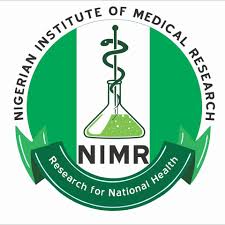By Kemi Akintokun
The Nigerian Institute of Medical Research (NIMR) says its ongoing study on the long term impact of antiretroviral drugs on the bone density of HIV patients in the country will improve treatment outcomes.
Speaking at the institute’s monthly media chat in Lagos, Dr Pascal Ezeobi, Head, Clinical Sciences Department in NIMR, disclosed that the study titled “Predictors of Antiretroviral Immune Reconstitution Bone Loss” ,started in September 2021.
Ezeobi said the study was in conjunction with Emory University in Atlanta, U.S. and supported by National Institute of Musculoskeletal Diseases in the U.S.
He noted that the introduction of antiretroviral drugs over the years had impacted positively on the quality of life of persons living with HIV, describing it as an important public health tool.
He said: “Over the years, the advent of antiretroviral drug therapy has changed the narrative about HIV; the disease is no longer an infection that is seen as a killer disease.
“Antiretroviral drugs reduce the load of HIV virus in patients, improve their quality of life and also reduces the risk of transmitting the disease to other persons.
“However, when people are placed on these drugs for a very long time, these drugs might have effects ranging from metabolic changes, affect liver function or kidney function and the quality of the bones of patients.
“This study we are carrying out is to find out the long time effect of using antiretroviral drug on HIV patients in Nigeria, to see prior to the time of commencing antiretroviral, what their picture is like in terms of bone strength”.
The Senior Research Fellow said the study would be concluded in 2026 and would be made public to further guide policies to improve treatment outcome for persons living with HIV.
According to him, NIMR has provided care for no fewer than 26,000 persons living with HIV in Nigeria.
Also, Dr Agatha Wapmuk, a research fellow, who spoke on NIMR’s role in the fight against cervical cancer, said its “ACCCES-HPV Project” has helped to improve the uptake of Human Papillomavirus (HPV) vaccination and screening among girls and women.
Wapmuk said that in collaboration with Washington University, U.S., University of North Carolina at Chapel Hill and Wake Forest School of Medicine in U.S., aligned with WHO 2020 strategy to accelerate the elimination of cervical cancer globally.
According to her, 12,000 new cases of cervical cancer are reported yearly in Nigeria while 8,000 women die yearly from the disease, hence the need to increase the uptake of HPV vaccine and screening.
“NIMR has always played a key role in cervical cancer prevention in Nigeria.
“In order to strengthen this role , this project was created with the aim to improve the uptake of HPV vaccination.
“Mostly among girls age 9 to 14 years and improve HPV screening among women age 30 to 65 years in the country and it is the second most commonest cancer among women.
“This project is unique because we collaborated with the end-users of the cervical prevention services to tell us how we can improve the uptake of HPV vaccination and screening.
“We launched a national open call because most research in cervical cancer prevention had been done solitarily, either to improve HPV vaccination among girls and screen for women, .
“This time around, we used the mother-daughter pair approach leveraging on the bond between mothers and daughters, thereby providing holistic prevention package to reduce the burden of the disease,” she said.
According to her, the mother to daughter strategy approach is adopted from the pilot study because of the acceptable outcome.
She noted that the study, in its fourth year, would determine the impact and cost-effectiveness of the strategy at the end of the study and address challenges that might hinder the implementation.(NAN) (www.nannews.ng)
Edited by Vivian Ihechu












